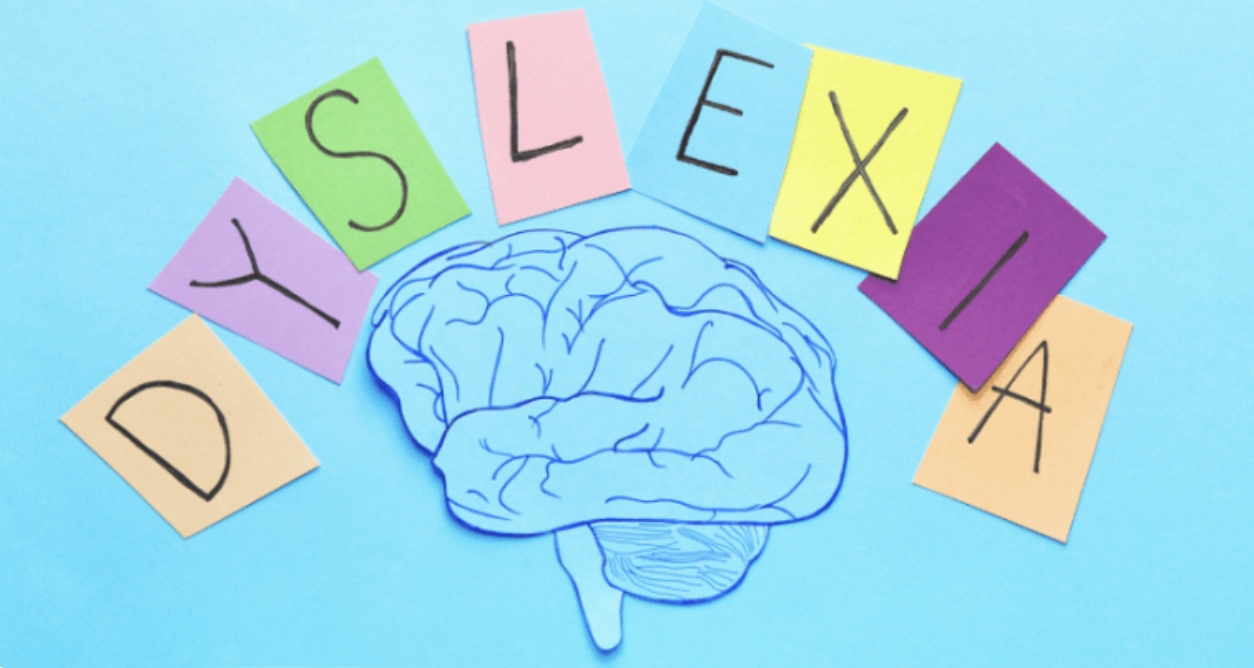
I only started learning about dyslexia over the past year, but I now think it’s really important that those of us that might not be personally affected learn more for lots of reasons. Before I get into the reasons, I want to share a quiz I heard the other day.
I was listening to a podcast about dyslexia and the guest, Richard Gentry who is a dyslexia expert and dyslexic himself, started with a 6-question quiz for the hosts. Besides the short quiz, which I found illuminating, I have a few links to other podcasts and books that have helped me learn more.
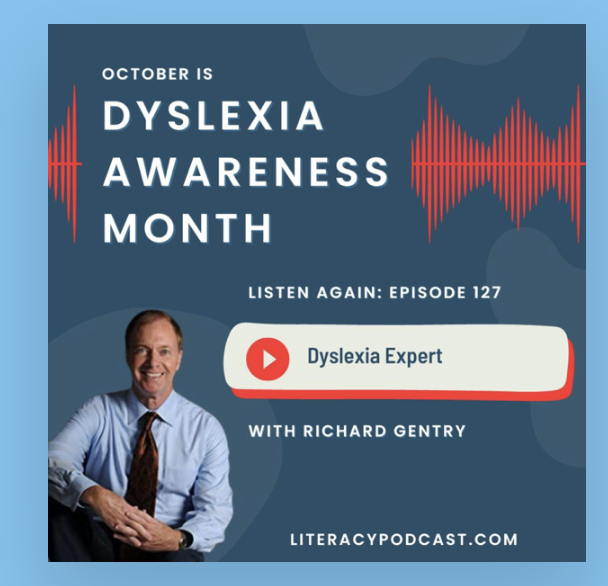
Here are the questions that Dr. Richard Gentry asked the hosts of the reading podcast, Melissa & Lori Love Literacy.
1. How many kids in your school are dyslexic? a. one in five b. two in 100
2. Does dyslexia run in families?
3. Are more boys dyslexic than girls?
4. Which statement is true? a. Many dyslexics end up in prison b. Many dyslexics are successful in life
5. Can dyslexia be cured?
6. Do people with dyslexia see words backwards?
Before he got into the answers, he shared the definition of dyslexia:
“Part of the definition from the International Dyslexia Association goes like this: Dyslexia is a specific learning disability that is neurological or neurobiological in origin. Dyslexia happens to be the number one reading disability.”
“It’s characterized by difficulties with accurate and or fluent word recognition and often by poor spelling and decoding abilities, and their secondary consequences, which may include problems in reading comprehension and reduced reading experience that can impede growth of vocabulary and background knowledge. So it’s really quite complex. It generally is most recognizable, I would say, in children who have trouble learning to read and learning to spell.”
Now for the answers:
1. How many kids in your school are dyslexic? a. one in five b. two in 100
Dr. Gentry’s Answer: “Recent studies suggest that one in five people have neurologically based processing difficulty for learning to read, and often brain scientists say it’s about 10 percent. But part of the difficulty is determining the incidence of dyslexia is that it manifests itself in a continuum, so that some cases are very mild, some cases are medium and some cases can be very, very severe.”
My answer: I thought it was 5-20%.
2. Does dyslexia run in families?
Dr. Gentry’s Answer: “The answer is yes, and it’s genetic in origin. It’s biologically and neurologically based, so familial occurrence is not surprising, and I’m glad you mentioned the brothers and sisters and parents, because if you are dyslexic, it’s likely that half of your brothers and sisters are too… Furthermore, if you are dyslexic, it’s about a 50% chance that one of your parents is dyslexic, but often it does skip a generation.”
My answer: Yes.
3. Are more boys dyslexic than girls?
Dr. Gentry’s Answer: “Yes. And science is interesting because science continues to bring in new information. Recent studies debunk a popular myth that the numbers are equal. About 10 years ago, I think, folks were thinking, according to science, that the numbers were equal, but the latest science does report that dyslexia is more common in boys.”
My answer: I thought it was equal.
4. Which statement is true? a. Many dyslexics end up in prison. b. Many dyslexics are successful in life.
Dr. Gentry’s Answer: “Both. Two things can be true.”
My answer: I just read this 2018 article, which cited a study that found that 80 percent of inmates in the Huntsville, Texas state prison were functionally illiterate, and 48 percent of those were dyslexic- so I only guessed “a”. But of course “b” is true also. Some believe Albert Einstein may have been dyslexic. And in this autobiography, Just Jerry, acclaimed children’s book illustrator Jerry Pinkney touches upon his undiagnosed dyslexia.
5. Can dyslexia be cured?
Dr. Gentry’s Answer: “It is definitely no, it’s genetic. However, both genetic and environmental factors play a role, and one of the reasons that teachers really need to understand dyslexia is because early intervention is a major goal and the earlier we find that kids are dealing with a learning disability like dyslexia and intervene, the more likely we are able to get kids on the right track and help kids overcome dyslexia.”
My answer: No, but can be mitigated with appropriate reading instruction.
6. Do people with dyslexia see words backwards?
Dr. Gentry’s Answer: “Probably not, but the science on this issue is kind of muddled…Most recent studies associate dyslexia’s causal factors with early difficulties in letter sound processing. We hear a lot about phonological processing deficits, and often with something called RAN or automatic rapid naming. While dyslexic children don’t see words backwards after grade two, it may be a red flag if they tend to write words backwards.”
My answer: I thought no and was glad for Dr. Gentry’s clarification.
This quiz and conversation came from this episode of the podcast Melissa & Lori Love Literacy.
More illuminating podcasts on dyslexia:
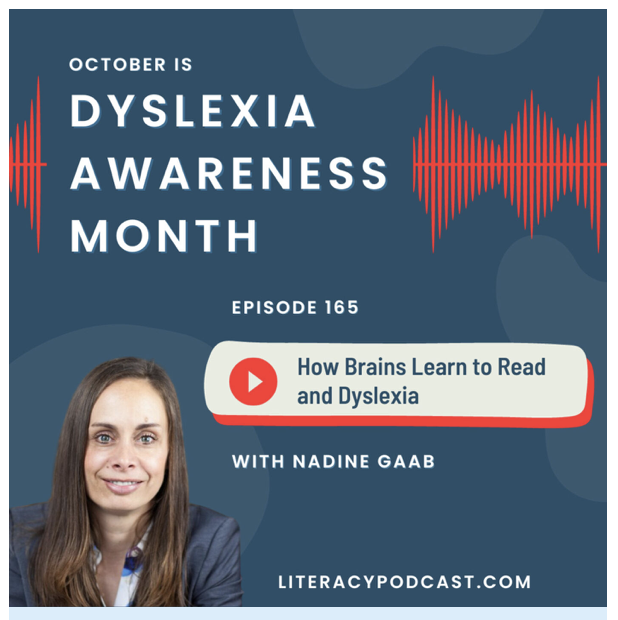
1. “How Brains Learn to Read and Dyslexia” with Nadine Gaab, Associate Professor of Education at the Harvard Graduate School of Education on Melissa & Lori Love Literacy.
The most thought-provoking idea from this podcast for me was the idea of screening kids really early- as toddlers and preschoolers- during well visits at the pediatrician or even having screening events at public libraries. While an official dyslexia diagnosis needs to come from a neuropsychologist, which can cost thousands of dollars, screening may offer early guidance.
Currently Michigan has no dyslexia screening in school. A couple of bills have been proposed by state legislators recently, but nothing has passed.
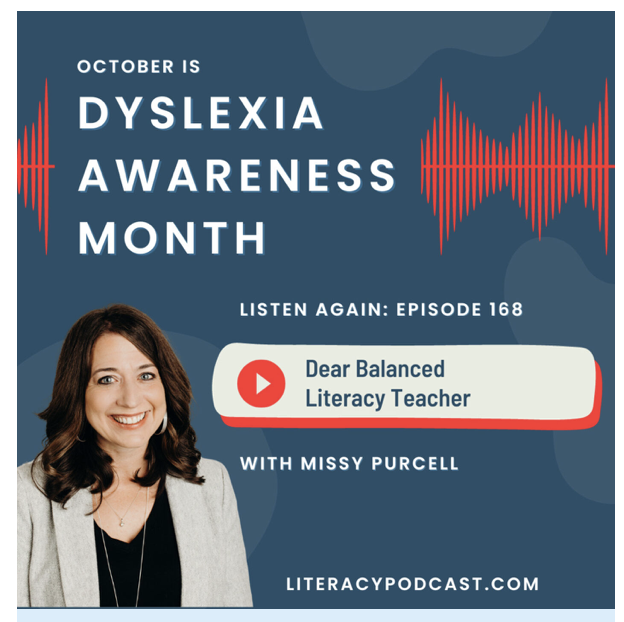
2. “Dear Balanced Literacy Teacher with Missy Purcell” on Melissa & Lori Love Literacy.
Missy Purcell was an elementary teacher who taught reading through balanced literacy. When her youngest son was diagnosed with dyslexia she began a journey of advocating for changes in reading instruction. She was featured in the Sold a Story podcast also.
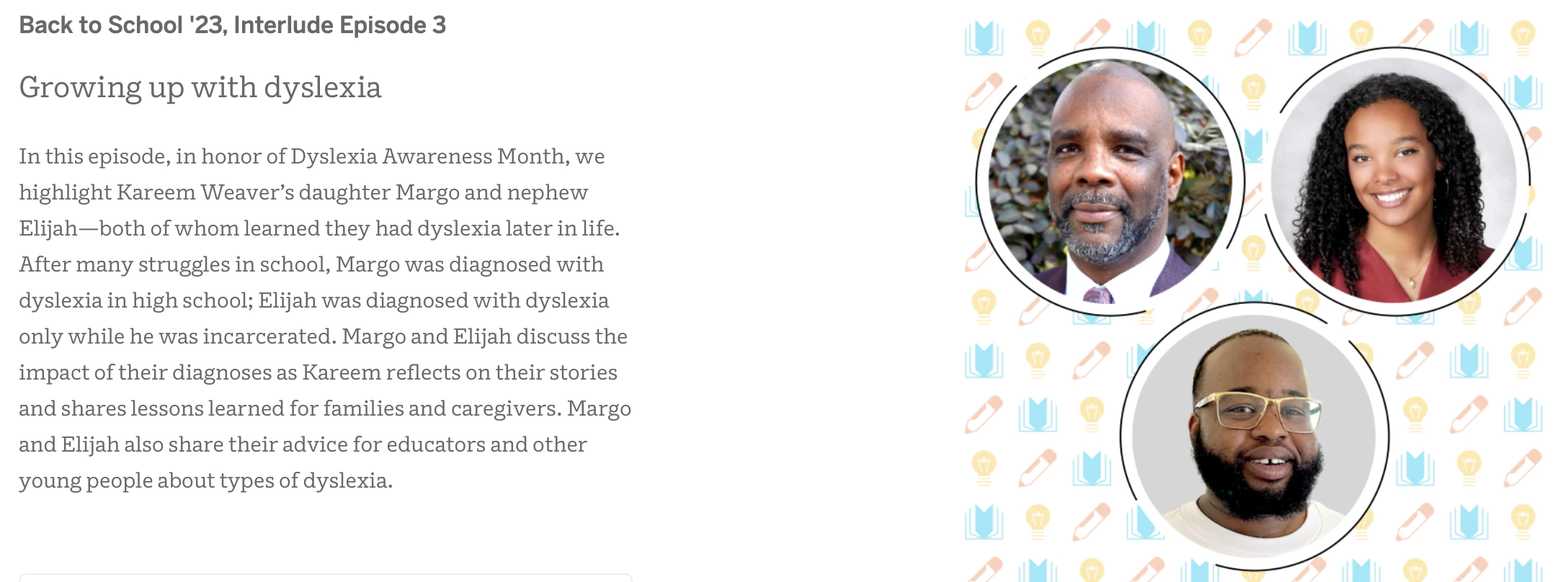
3. “Growing Up with Dyslexia with Kareem Weaver” on Science of Reading: The Podcast.
This is a conversation with reading activist Kareem Weaver and his daughter and nephew. Weaver’s daughter was diagnosed with dyslexia in high school and his nephew was diagnosed while incarcerated.
Eye-opening books and articles on dyslexia:
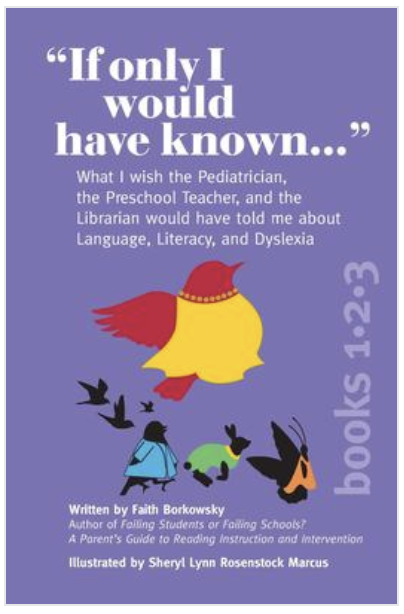
1. If Only I Would Have Known: What I wish the pediatrician, the preschool teacher, and the librarian would have told me about language, literacy, and dyslexia by Faith Borkowsky
This is a very fast and approachable read. It’s framed as three plays between a fictional parent and her interaction about literacy with her child’s pediatrician, preschool teacher, and public librarian. One thing mentioned is that often children will have a diagnosis of dyslexia and ADHD. In addition, sometimes there is a link between a child’s delay in talking and dyslexia.
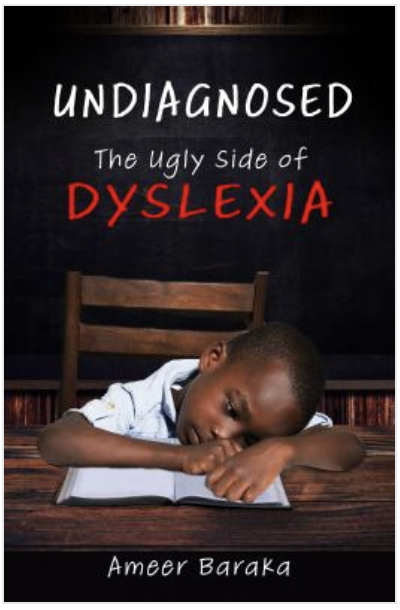
2. Undiagnosed: The Ugly Side of Dyslexia by Ameer Baraka
Baraka, an award-winning actor and dyslexia activist, recounts growing up in New Orleans with undiagnosed dyslexia and his later dyslexia diagnosis while incarcerated.
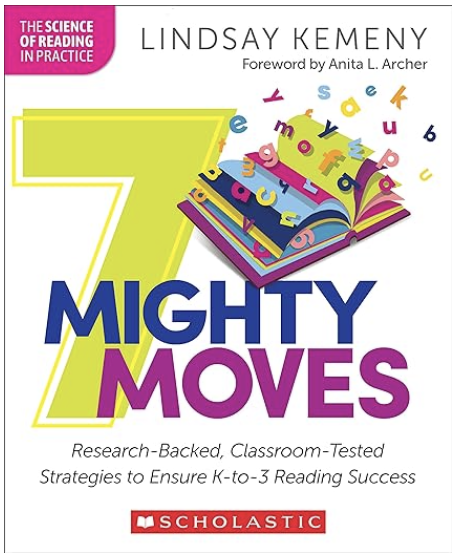
3. 7 Mighty Moves: Research-backed, classroom-tested strategies to ensure K-to-3 reading success by Lindsay Kemeny
After her son was diagnosed with dyslexia and depression, elementary teacher Kemeny learned everything she could about dyslexia and effective reading instruction for all. This book is geared towards elementary teachers, but as a parent I found it enlightening and helpful as well.
4. Dyslexia: The Learning Disability That Must Not Be Named: This is a short and concise article/ 4 minute recording from NPR’s All Things Considered.
Even more reasons why I think we should all be more informed on dyslexia?
- There is a big discrepancy in who gets diagnosed. While dyslexia affects all races/ ethnicities equally, because of the high cost of getting tested with a neuropsychologist, white families are more likely to be able to pay for testing.
- It’s a big financial burden, not only for an official evaluation, but also to pay for extra tutoring or to switch to a specialized private school, which many families do for several years.
- Undiagnosed students often experience negative outcomes because traditional reading instruction does not reach them; they may only be screened or diagnosed for dyslexia and receive the instruction they need while incarcerated.
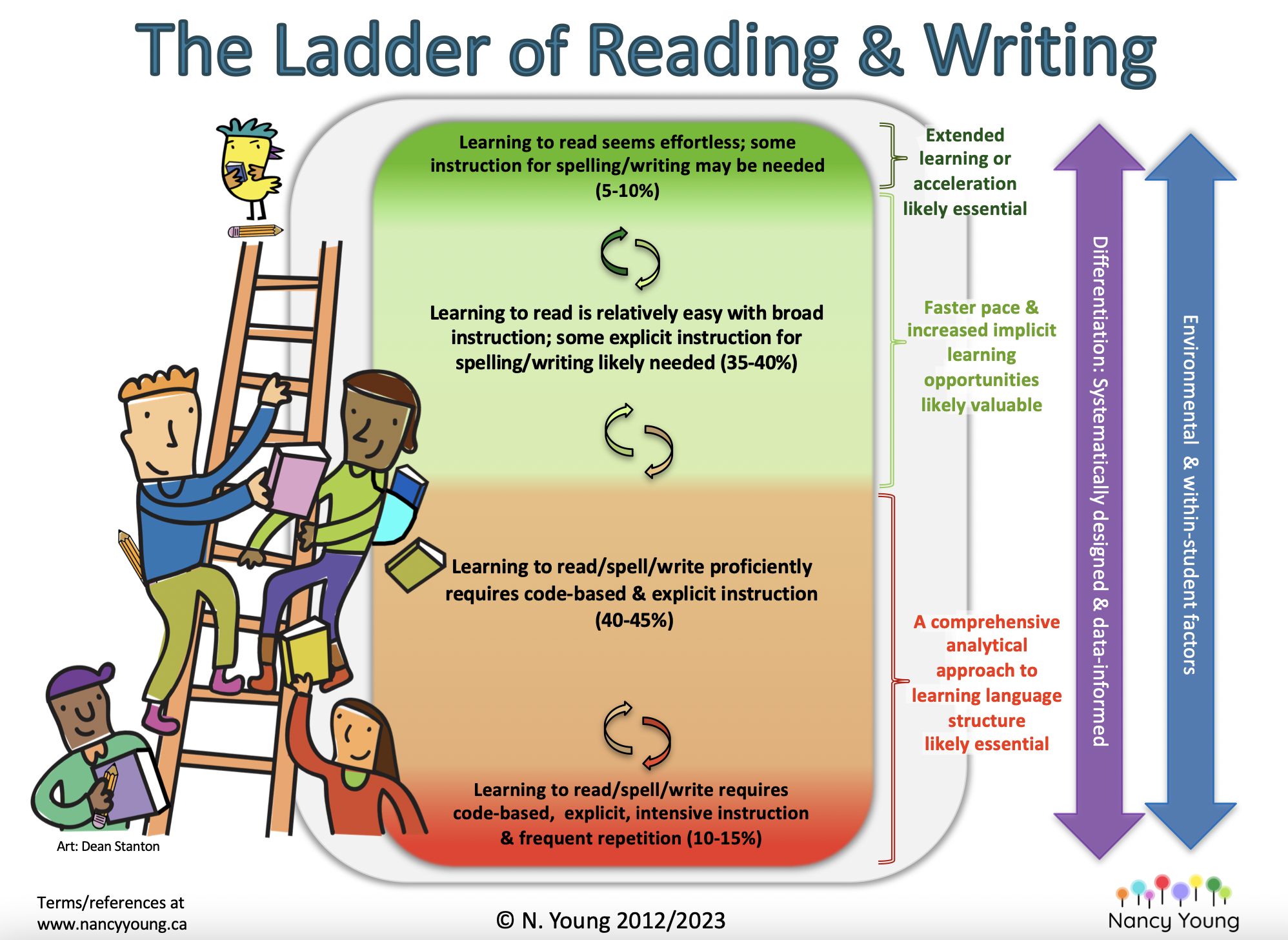
Last thing I’d like to note, thinking about Nancy Young’s Ladder of Reading and Writing has helped me visualize the differences in various childrens’ ability to grasp reading. The ladder graphic shows that all kids need the same type of instruction to learn to read and write, but that where they start on the ladder has a lot to do with how their brains are wired.
Kids in the red group have the most work to do to climb the ladder of reading and writing. For them, “Learning to read/ spell/ write requires code-based, explicit, intensive instruction and frequent repetition.” About 10-15% of the population falls into this group, and kids affected by dyslexia would be included in this group.
Is there anything else on this subject you’d like to add?